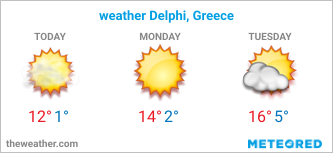
Mosaic with the Labors of Hercules, 3rd century AD, found in Lliria (Valencia),
National Archaeological Museum of Spain, Madrid. (CC BY-SA 2.0, Link. By Carole Raddato)
The Labours of Hercules or Labours of Heracles (Ancient Greek: ἆθλοι, âthloi[1] Latin: Labores) are a series of tasks carried out by Heracles, the greatest of the Greek heroes, whose name was later romanised as Hercules. They were accomplished in the service of King Eurystheus. The episodes were later connected by a continuous narrative.
The establishment of a fixed cycle of twelve labours was attributed by the Greeks to an epic poem, now lost, written by Peisander (7th to 6th centuries BC).
Having tried to kill Heracles ever since he was born, Hera induced a madness in him that made him kill his wife and children. Afterwards, Heracles went to the Oracle of Delphi to atone, where he prayed to the god Apollo for guidance. Heracles was told to serve Eurystheus, king of Mycenae, for ten years. During this time, he was sent to perform a series of difficult feats, called labours.
the 12 Labors of Heracles
1st Labor of Heracles - the Nemean Lion
Heracles' first task was to slay the Nemean Lion and bring back its skin, which Heracles decided to wear. Eurystheus was so scared by Heracles' fearsome guise that he hid in a subterranean bronze winejar, and from that moment forth all labors were communicated to Heracles through a herald, Copreus.
2nd Labor of Heracles - the Lernaean Hydra
For his second labour, to slay the Lernaean Hydra, Heracles took with him his nephew, Iolaus, as a charioteer. When Eurystheus found out that Heracles' nephew had helped him he declared that the labour had not been completed alone and as a result did not count towards the ten labours set for him.
3rd Labor of Heracles
Eurystheus' third task did not involve killing a beast, but capturing one alive—the Ceryneian Hind, a golden-horned hind or doe sacred to Artemis. Heracles knew that he had to return the hind, as he had promised, to Artemis, so he agreed to hand it over on the condition that Eurystheus himself come out and take it from him. Eurystheus did come out, but the moment Heracles let the hind go, she sprinted back to her mistress, and Heracles departed, saying that Eurystheus had not been quick enough.
4th Labor of Heracles
When Heracles returned with the Erymanthian Boar, Eurystheus was again frightened and hid in his jar, begging Heracles to get rid of the beast; Heracles obliged.
5th Labor of Heracles
The fifth labour proposed by Eurystheus was to clear out the numerous stables of Augeias. Striking a deal with Augeias, Heracles proposed a payment of a tenth of Augeias' cattle if the labour was completed successfully. Not believing the task feasible, Augeias agreed, asking his son Phyleus to witness. Heracles rerouted two nearby rivers (Alpheis and Peneios) through the stable, clearing out the dung rapidly. When Augeias learned of Heracles' bargain for the task, he refused payment. Heracles brought the case to court, and Phyleus testified against his father. Enraged, Augeias banished both Phyleus and Heracles from the land before the court had cast their vote. However, Eurystheus refused to credit the labour to Heracles, as he had performed it for payment. So Heracles went and drove Augeias out of the kingdom and installed Phyleus as king. Heracles then took his tenth of the cattle and left them to graze in a field by his home.
6th Labor of Heracles
For his sixth labour, Heracles had to drive the Stymphalian Birds off the marshes they plagued. He did so, shooting down several birds with his Hydra-poisoned arrows and bringing them back to Eurystheus as proof.
7th Labor of Heracles
For his seventh labour, Heracles captured the Cretan Bull. He used a lasso and rode it back to his cousin. Eurystheus offered to sacrifice the bull to Hera his patron, who hated Heracles. She refused the sacrifice because it reflected glory on Heracles. The bull was released and wandered to Marathon, becoming known as the Marathonian Bull.
When Heracles brought back the man-eating Mares of Diomedes successfully, Eurystheus dedicated the horses to Hera and allowed them to roam freely in the Argolid.[17] Bucephalus, Alexander the Great's horse, was said to be descended from these mares.
9th Labor of Heracles
To acquire the belt of Hippolyte, queen of the Amazons, was Heracles' ninth task. This task was at the request of Eurystheus' daughter, Admete.
10th Labor of Heracles
For the tenth labour, he stole the cattle of the giant Geryon, which Eurystheus then sacrificed to Hera.
11th Labor of Heracles
To extend what may have once been ten Labours to the canonical dozen, it was said that Eurystheus didn't count the Hydra, as he was assisted, nor the Augean stables, as Heracles received payment for his work. For the eleventh labour, Heracles had to obtain the Apples of the Hesperides; he convinced their father, the Titan Atlas, to help him, but did his share of work by temporarily holding up the sky in the Titan's stead.
12th Labor of Heracles
For his final labour, he was to capture Cerberus, the three-headed hound that guarded the entrance to Hades. When he managed to bring the struggling animal back, the terrified Eurystheus hid in his jar one more time, begging Heracles to leave for good and take the dog with him.




